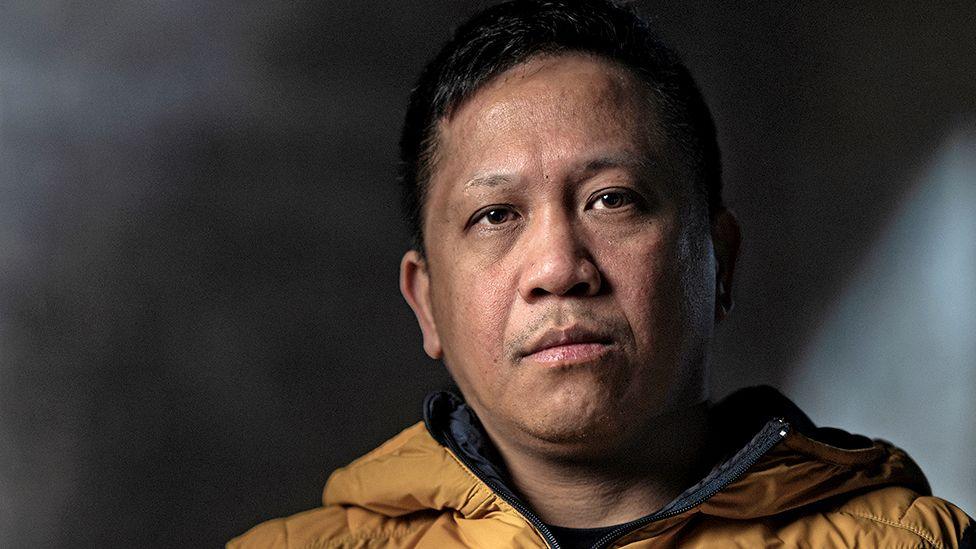My skipper husband thought he was indestructible
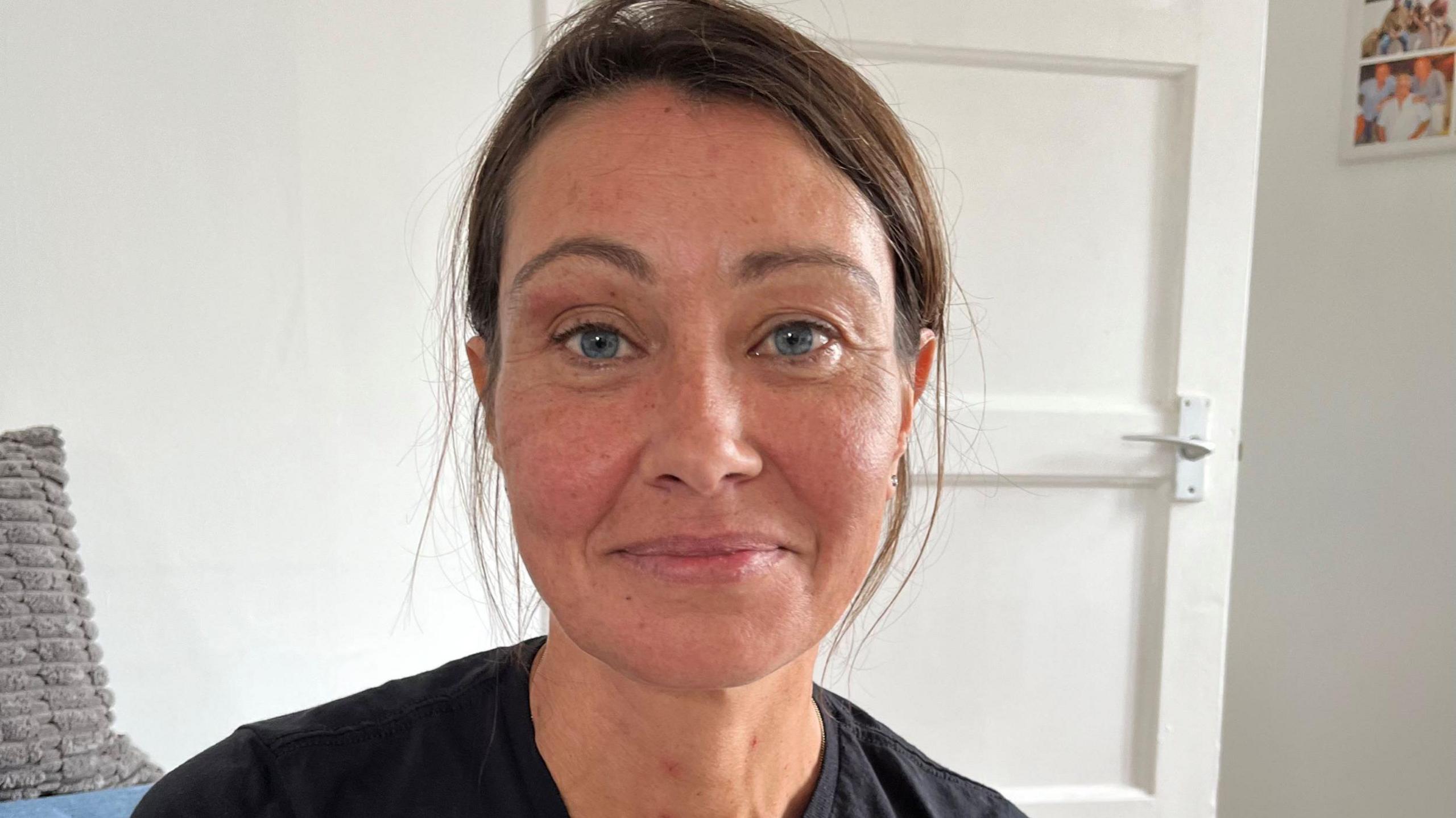
Amanda Nithavrianakis' husband John died from cancer after putting off visiting his doctor
- Published
Fishermen are being warned they are putting themselves at risk of preventable illness and even death by delaying seeking medical advice.
Amanda Nithavrianakis, whose skipper husband John died of cancer at the age of 52, believes his attitude of self-reliance and toughness contributed to the delay in his diagnosis and treatment.
"There’s this mentality, especially among fishermen," Amanda says. "They’re rufty-tufty.
“They think nothing goes wrong with them. But it’s just not true."
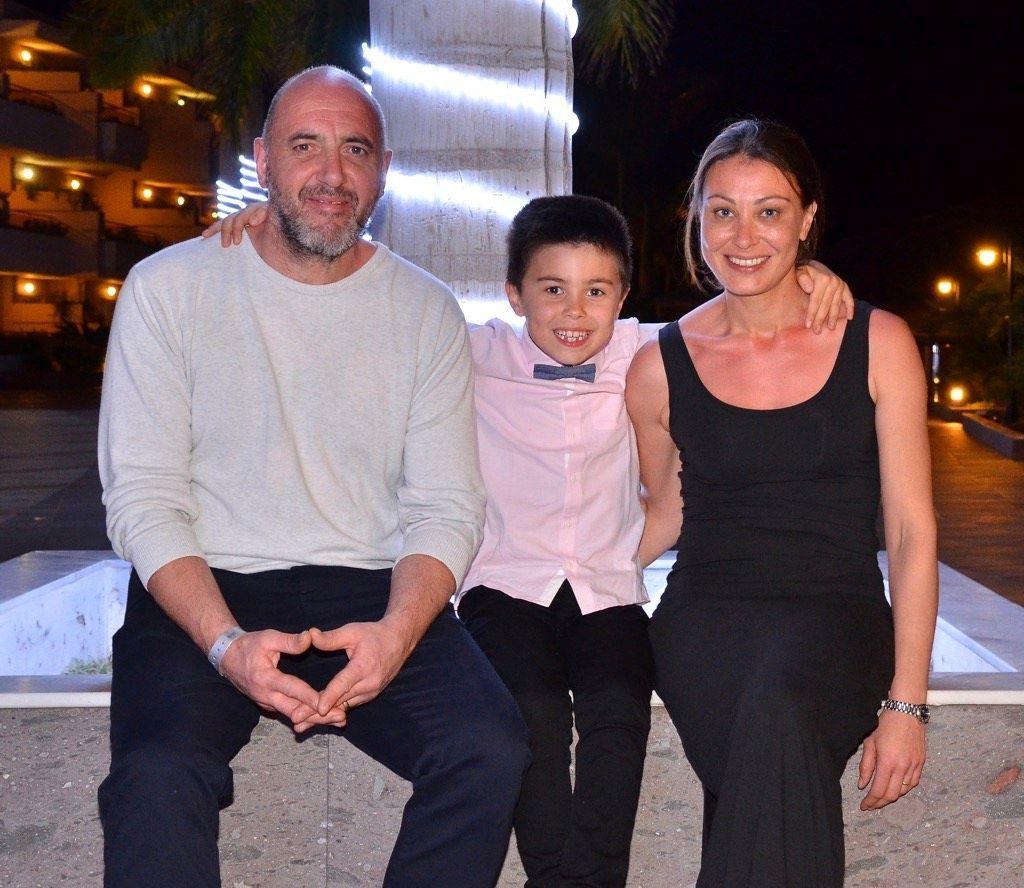
John and his wife Amanda with their son Nico
John was the captain of a fishing boat based in the south of Scotland town of Kirkcudbright.
In March 2016, he began struggling to swallow but delayed seeking medical help, prioritising his work over his health.
“It was heartbreaking to watch,” Amanda says. “He was always so strong, so capable.
"When he first had trouble swallowing, he just brushed it off. He’d say ‘I’m fine’ but I could see he wasn’t.”
Weeks passed, and Amanda’s concern grew as John’s symptoms got worse, to the extent that he was having to be sick before he could eat.
“I eventually made the appointment myself but even then he was only given antacids,” Amanda says.
John had to cancel at least one further appointment as it clashed with work and it was not until much later that he was diagnosed with oesophageal cancer.
Despite undergoing major surgery, the cancer had metastasised and John died in April 2018.
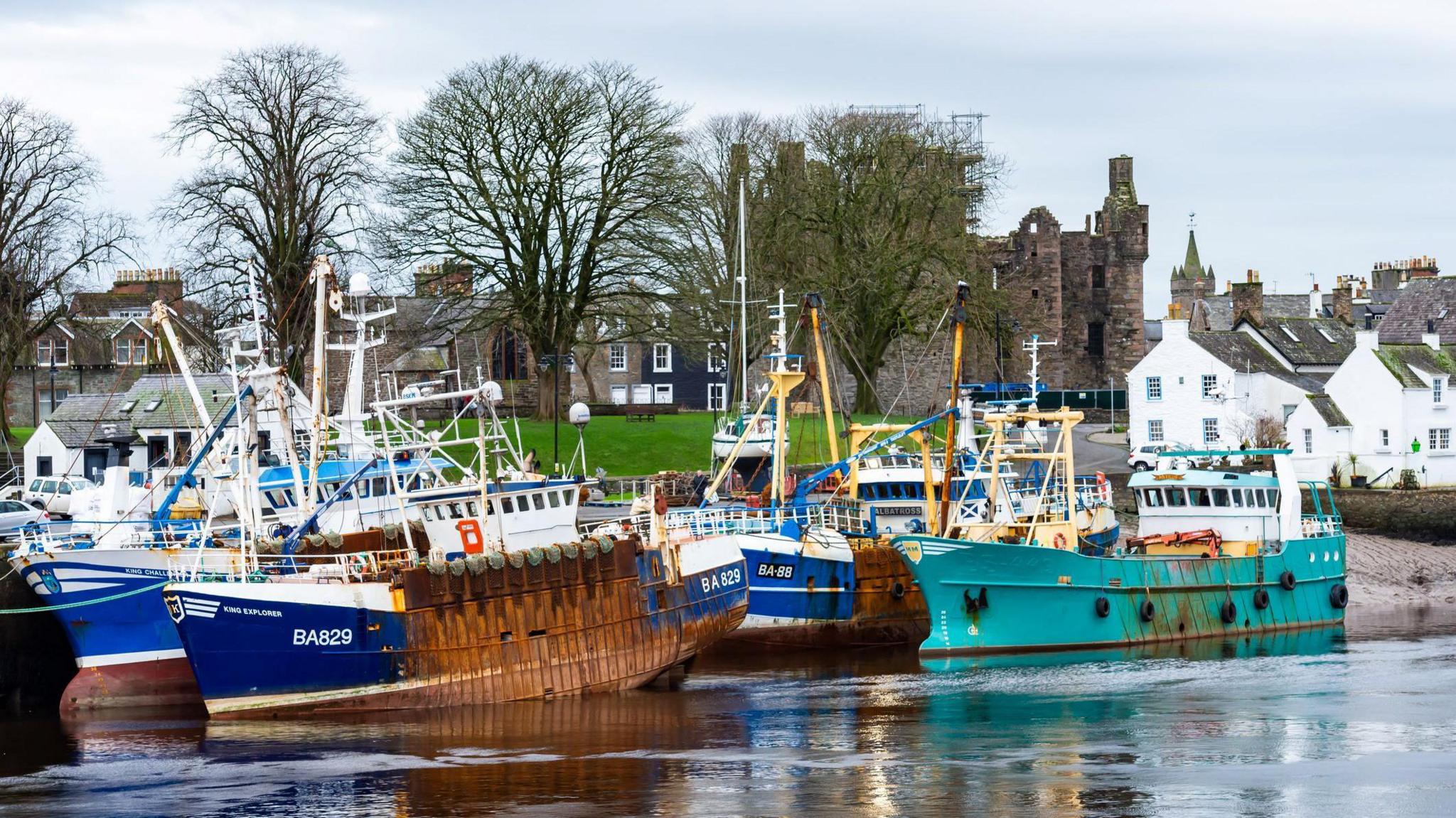
Scallop dredging boats tied up in the harbour of the fishing port of Kirkcudbright
Amanda says John was the boat's captain and his crew relied on him being able to work.
She says that without a skipper, no fish can be caught, which subsequently puts mental and financial pressure on all those involved, including families.
His routine meant he could be at sea for up to two weeks at a time, making it difficult to arrange and keep GP appointments.
'Fishing industry crisis'
The number of active fishermen in Scotland has declined to about 3,800, according to a 2023 report by the Scottish government.
It is a number that has been steadily declining for around a decade.
Tougher working conditions, poor health outcomes, and increased stress are deterring new entrants into the industry as well as making those inside it reconsider their future, according to fishing organisations.
Despite these challenges, fishing remains one of Scotland’s largest industries, with fish landed in 2023 worth more than £650m.

Amanda and John Nithavrianakis celebrating a wedding anniversary
The Fishermen’s Mission, a charity dedicated to supporting those in the industry, is warning that poor health - both physical and mental - is widespread among crews.
Ali Godfrey says many, like John, seek medical help only when it is too late, resulting in preventable illnesses and deaths.
“Cardiovascular issues, skin cancers, and severe dental problems are alarmingly common,” Ms Godfrey says.
"The demanding nature of the job, coupled with irregular work patterns, often prevents fishermen from accessing regular healthcare.”
Peter Bruce, a skipper from Peterhead, knows these challenges all too well.
He told BBC Scotland News: “It’s not the most healthy job, to be honest.
“You’re unpredictable with your sleep, with your meals. And with fishermen being so unpredictable with when they’ll be ashore, it’s hard to keep any kind of appointment. I’ve missed a lot over the years.”
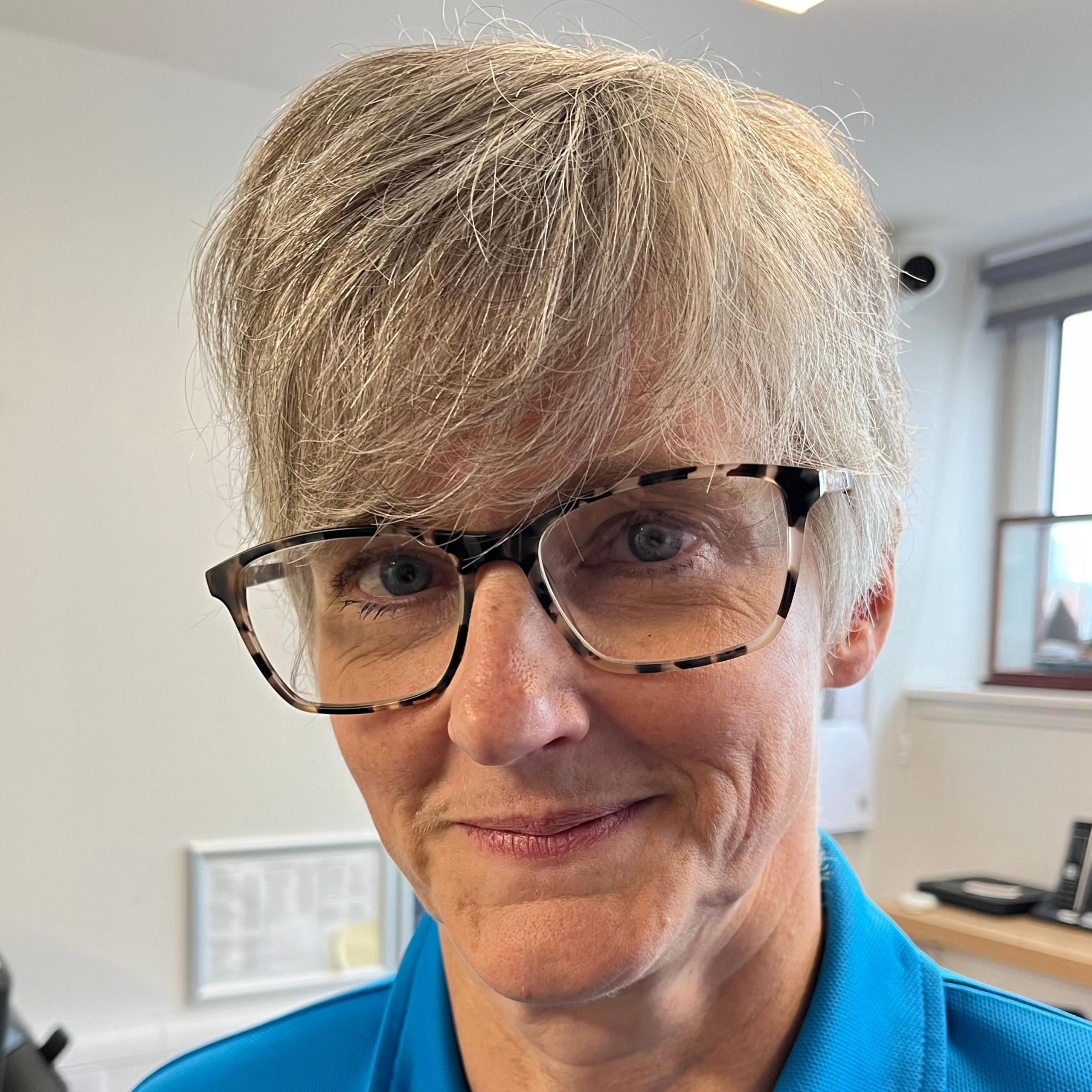
Catriona Arthur leads dock-side health checks in Peterhead
In response to the problem, the Fishermen’s Mission and other organisations have launched health check initiatives at docks across the UK.
Catriona Arthur leads one such initiative in Peterhead called SeaFit.
"These dockside health checks are vital,” she says.
"They’re designed to be accessible to fishermen, who often can’t predict when they’ll be ashore.
"We can catch conditions like high blood pressure and cholesterol, and refer them to GPs before it’s too late.”
She adds that historically, fishermen have suffered from long-term health conditions.
“As they get older, they develop things like COPD and cardiovascular issues," Ms Arthur says.
"It’s about prevention."
For Amanda, the message is clear.
“If there’s something wrong, please go to the doctor. It’s too important not to," she says.
"And for wives like me, don’t let them tell you that they’re fine when you can see that they’re not.”
Related topics
- Published6 August 2024
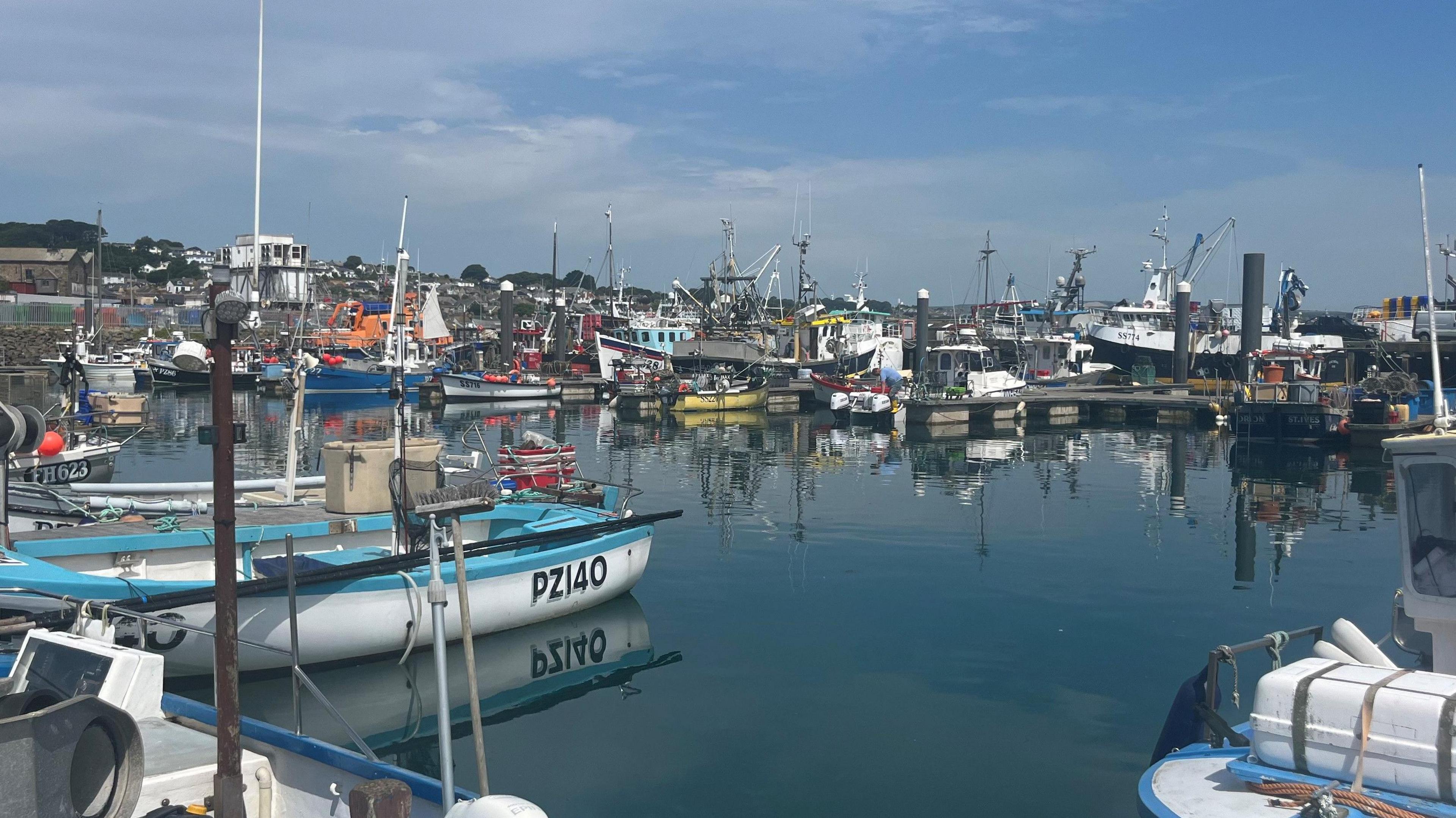
- Published19 August 2024
